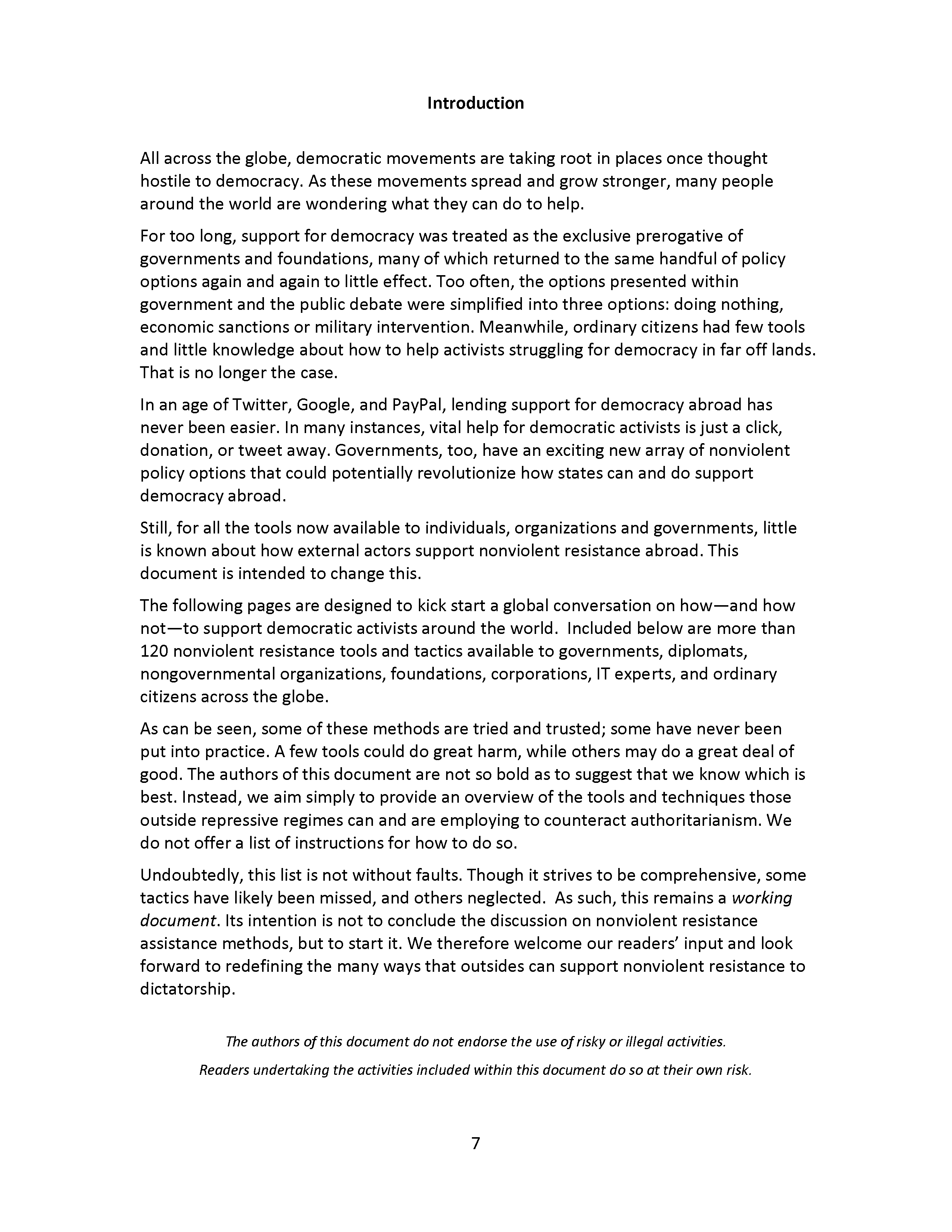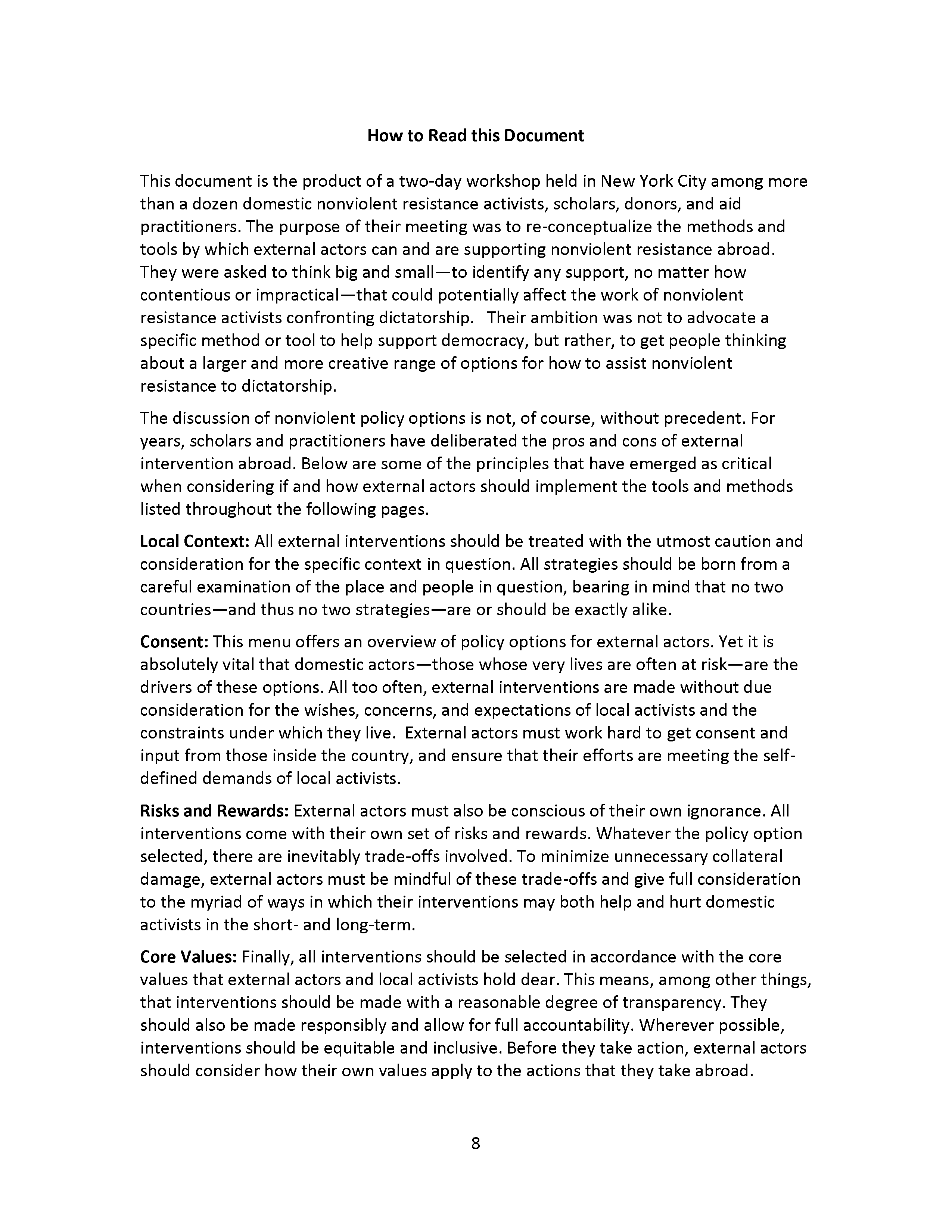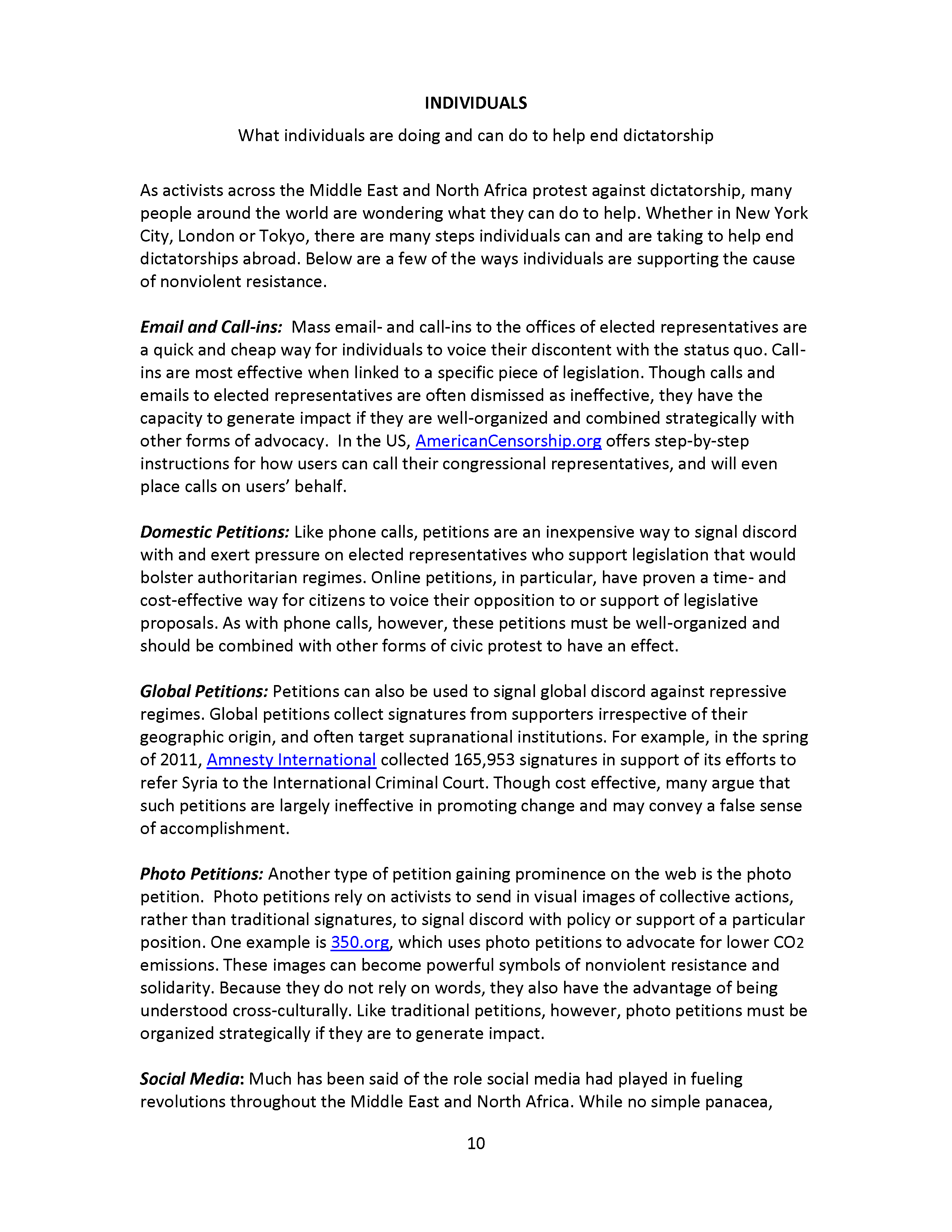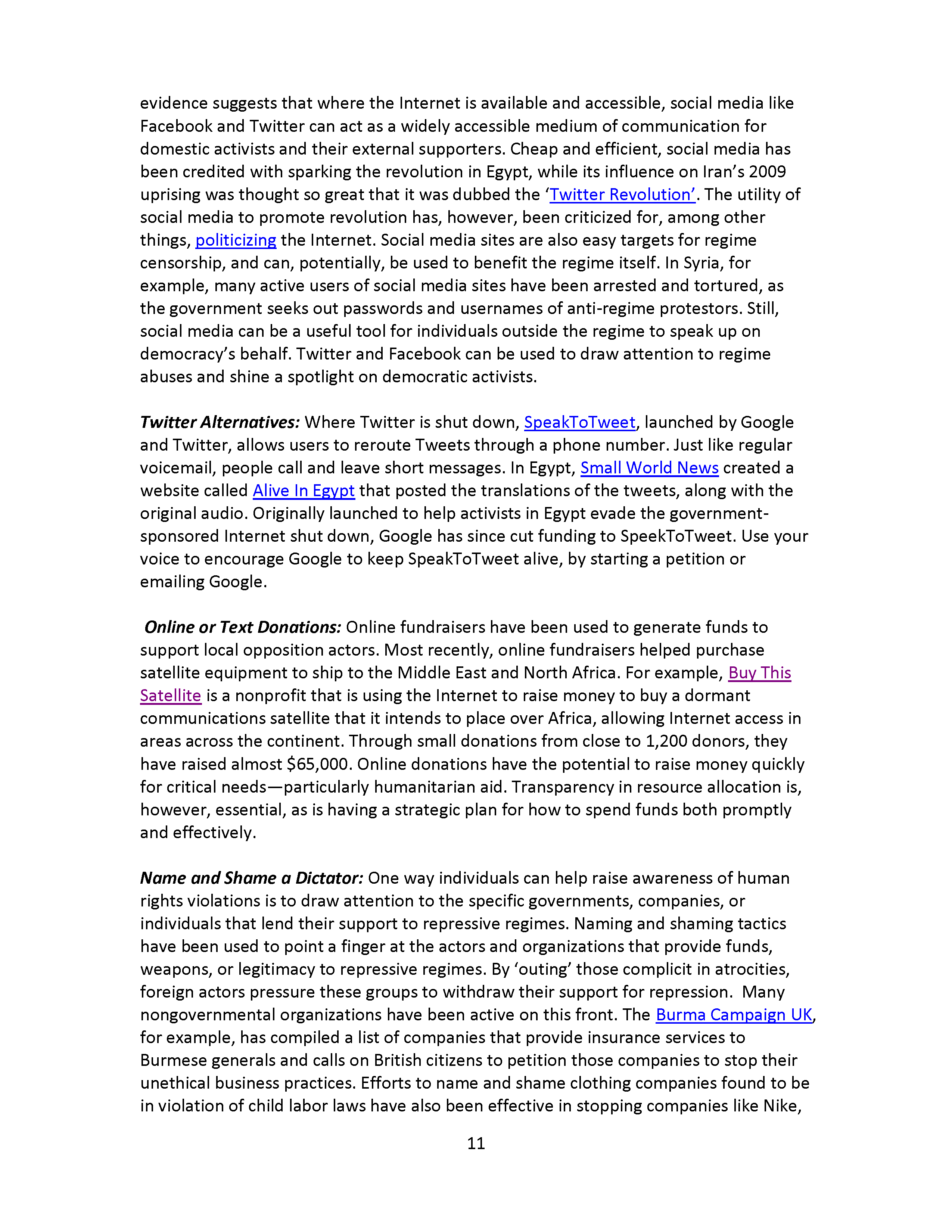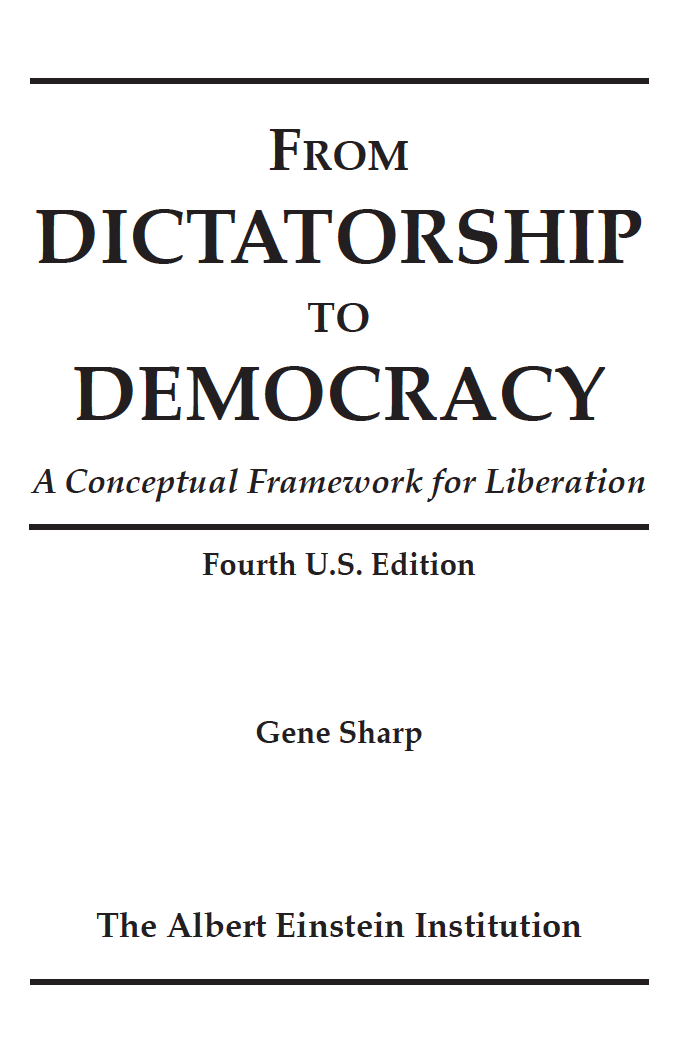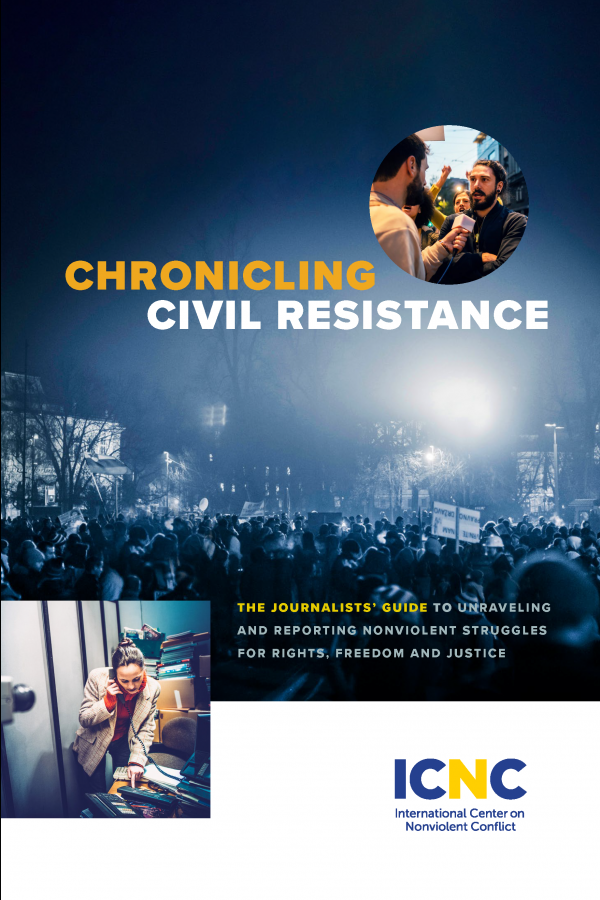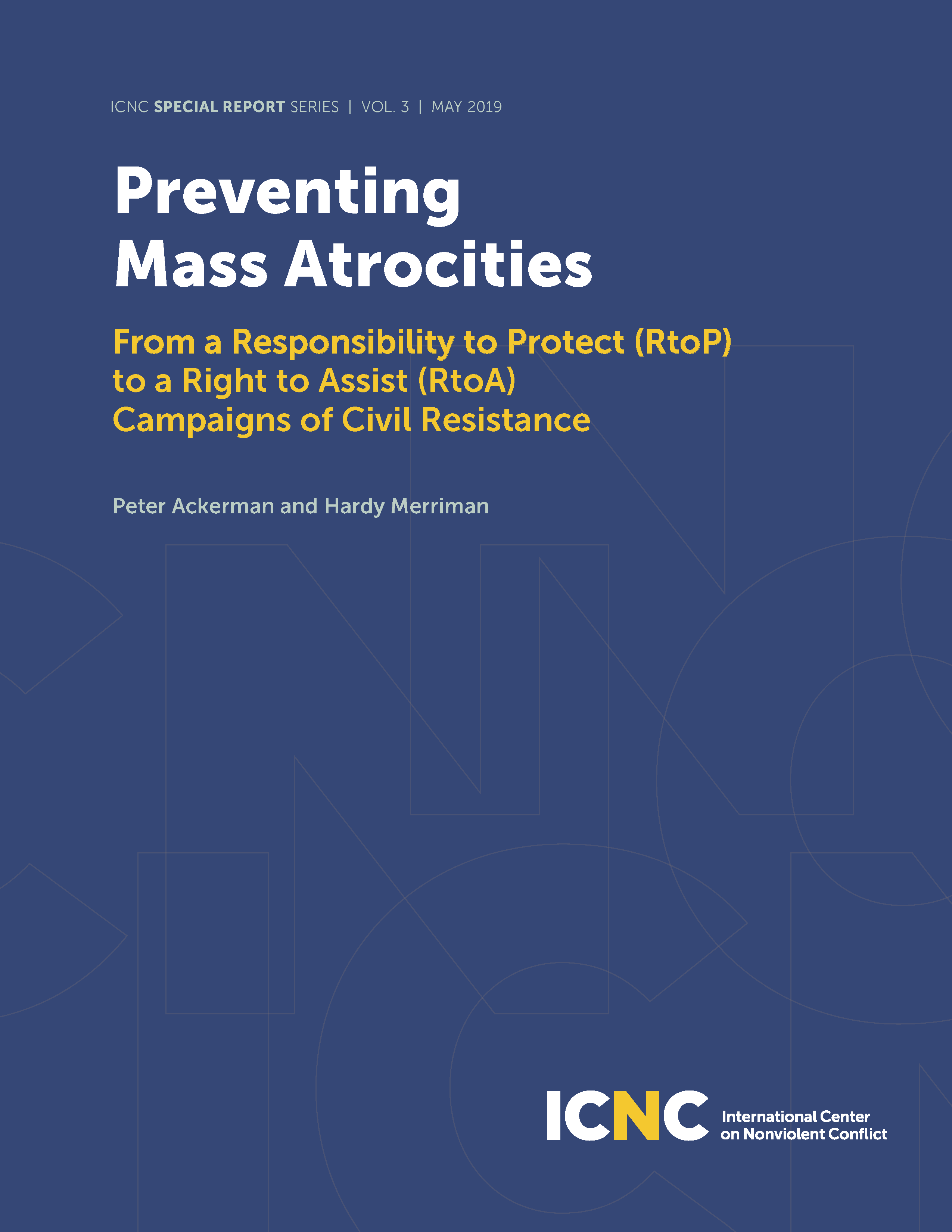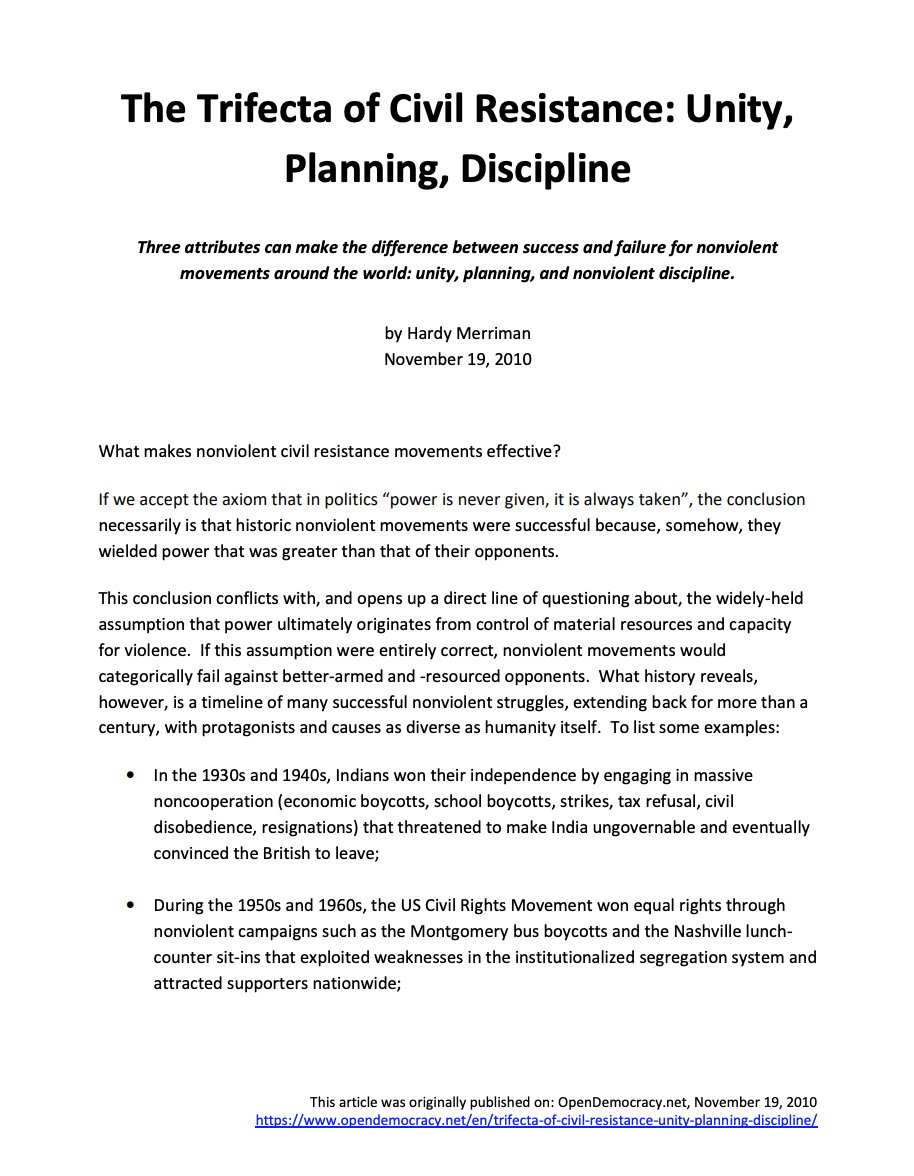An Outsider’s Guide to Supporting Nonviolent Resistance to Dictatorship
In November 2011 a group of experts on non-violence from around the world gathered in New York to consider how those outside a country subject to dictatorship or repression might help those within it fighting for democracy.
The result was this document, a list of non-violent techniques that can and have been used against repressive dictatorships and autocratic regimes around the world. It describes techniques that might be most useful to those outside the particular country concerned. There already exist detailed guides on non-violent techniques for those inside undemocratic countries, including Gene Sharp’s seminal work, “From dictatorship to democracy” which is available for download at the Einstein Institute.
The document is not a list of recommendations and the authors can take no responsibility for any use made of it. Some of the techniques are illegal in certain jurisdictions (sometimes many jurisdictions) and must be treated in that light.
In all cases, and most importantly, any non-violent techniques should only be undertaken after careful consideration of the views and interests of the ordinary people and activists who might be most affected, including those “on the ground” in the country concerned. It is their country – and lives – at stake, and their needs are primary.
outsiders-guide.org, 2011

